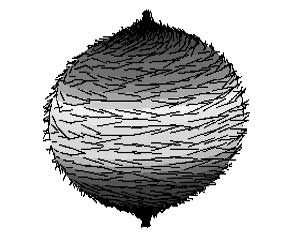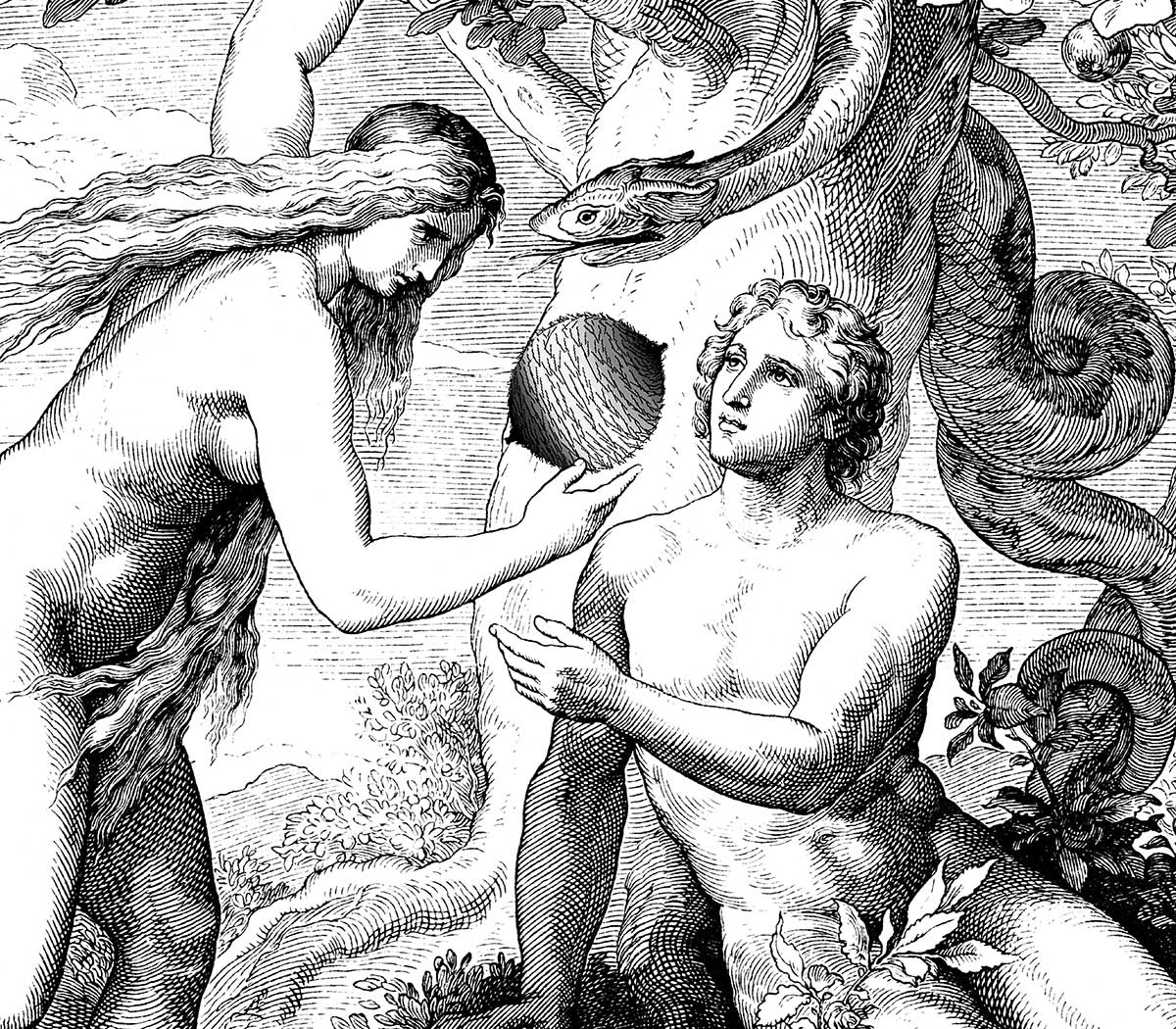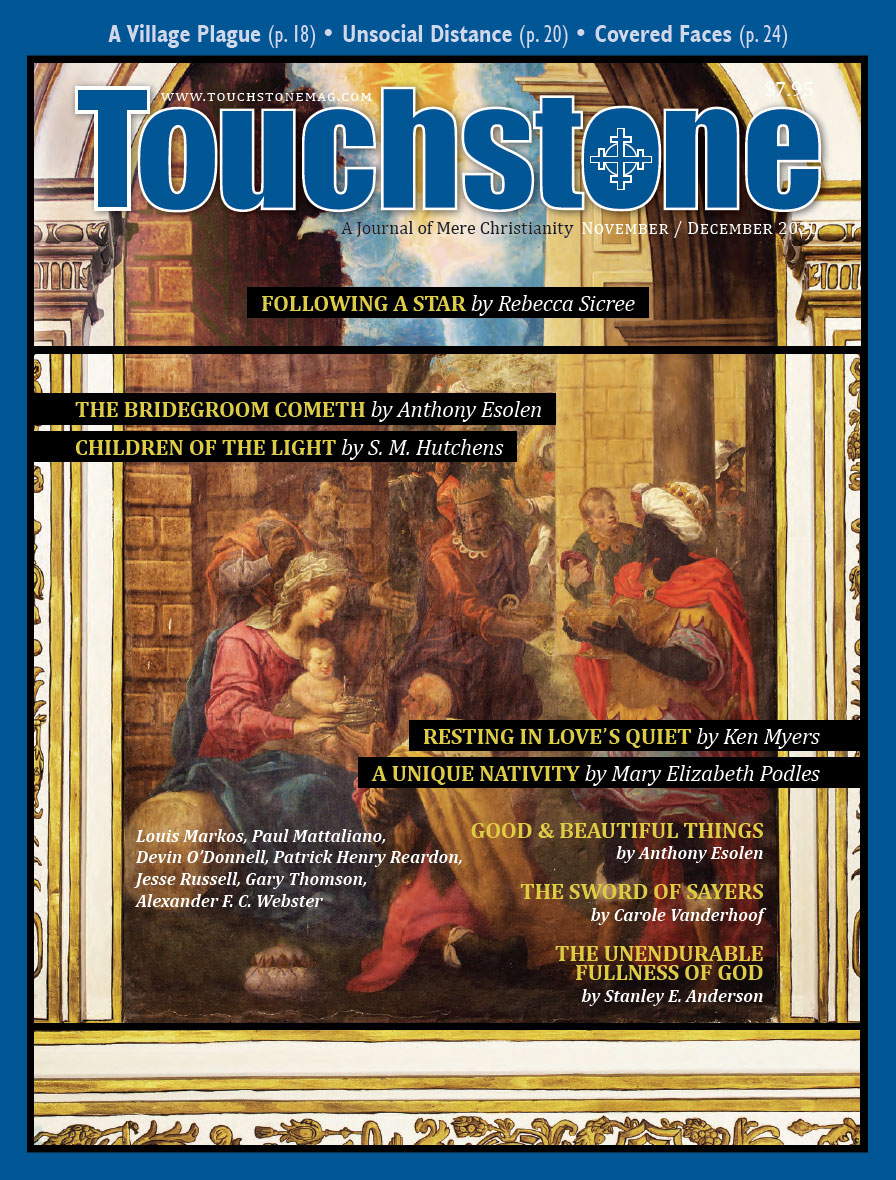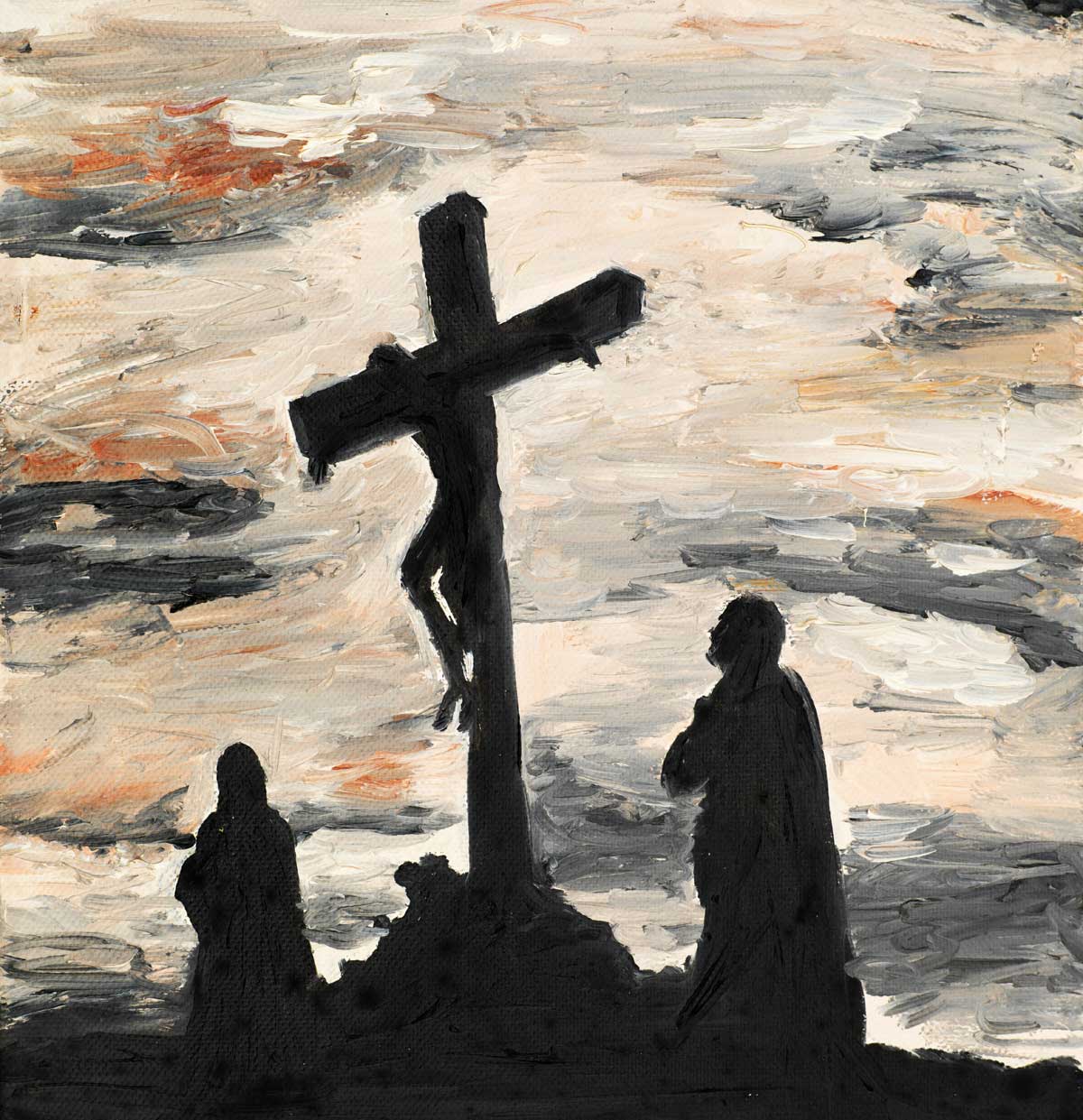Feature
The Unendurable Fullness of God
The Effects of the Fall as a Divine Protection Plan
An old newspaper comic strip, Arnold, shows student Arnold and his gullible friend Tommy standing behind a table. On the table are two electronic boxes with loose wires dangling from them. Arnold tells Tommy, "Guard my science project and don't touch those wires together or you'll get a shock. Remember, don't touch the wires." In the next two panels, Tommy contemplates the devices. The last panel shows Tommy holding the wires together in his hands with shock lines emanating from his jolted body and face. Arnold, having returned, says, "And they say the Garden of Eden is just a story."
In light of this observation, some might ask why God, as described in Genesis 2, would place the tree of the knowledge of good and evil in the garden to tempt man in the first place. One might wonder, "Did God want them to fail?" C. S. Lewis attempted to work around this complaint in the second book of his Space Trilogy, Perelandra. He argues in part that the heart of the prohibition (in the novel, staying overnight on "fixed land" is prohibited) lay in the availability of an act of pure obedience without seeming reason. But one might still wonder why "testing conditions" were required. Is an actual available choice for disobedience a "necessary evil" inherent to the gift of free will? Or is it merely God in his freedom doing it "because he could"? If the latter, the events can seem to have been orchestrated to foment disaster.

The Hairy Ball
The Hairy Ball Theorem in mathematics says, informally, "You can't comb a hairy ball flat without creating a cowlick." Imagine a dog's fur that can be petted "smoothly" from head to tail, but that offers resistance when petted in the opposite direction. The Hairy Ball Theorem proves that this kind of streamlined "directional fur" cannot smoothly cover the entire surface of a ball. There must be at least one point—typically many—where a disrupting "tuft" appears. And, curiously, this rather esoteric fact provides two useful analogies about good and evil in God's creation.
An easily envisioned "two-tufted" example of the hairy ball is a hypothetical global wind pattern blowing, say, from west to east, encircling an entire planet. The wind pattern is "smooth" everywhere except for two places, the north and south poles, like the eyes of two hurricanes. Smooth directional fur (having, similarly, two tufts, at the corresponding north and south poles) is easier to picture and describe than wind patterns and will serve best as a conceptual aid here.
Likening the Garden of Eden to this variation on the Hairy Ball of the theorem, the directional fur corresponds to the arena of trees in the garden of which Adam and Eve could "freely eat." Consider Adam and Eve likewise as "pliant patches" of similar directional fur on the surface of the hairy ball, able to "move about" by keeping their own fur aligned with the ball's fur (i.e., their free will aligned with God's will). In fact, the mere idea of not aligning with it would likely not occur to them. As long as they remain in obedience, i.e., anywhere except for the tufted poles, their obedience "lines up" with the pattern of God's will, and all is well.
By analogy, the tree of the knowledge of good and evil that Adam and Eve are commanded not to eat the fruit of corresponds to a "tuft" required by the Hairy Ball Theorem. By disobeying, Adam and Eve "move onto" the tufted area, ingesting it at, say, the ball's "north pole." But the intrinsically entangled discontinuity of the tuft doesn't allow for any kind of "smooth alignment"—and something must give. And since they have "consumed" this discontinuity into their very being, their own pattern can no longer align smoothly with God's will elsewhere, corresponding to the curse of death and sweat and sorrow in childbirth and tilling the ground for food that God said would occur as a result of their disobedience. One can almost envision a kind of rippling effect, like the wake of a powerboat in water, emanating from their own alignment-disruption wherever they go.
The main point of these fanciful imaginings is not so much to suggest "how," by analogy, the Fall or salvation came about in precise mechanical fashion, but to show that the presence of temptation for disobedience may be a required logical condition of the manner in which God brought Man and the Garden into existence, as opposed to God maliciously placing the forbidden fruit in the garden to foment disobedience.
The Torus
Stanley E. Anderson holds a degree in mathematics and has worked in data analysis, IT, and quality assurance in the aerospace industry. He and his wife are converts from Anglicanism to the Catholic Church.
subscription options
Order
Print/Online Subscription

Get six issues (one year) of Touchstone PLUS full online access including pdf downloads for only $39.95. That's only $3.34 per month!
Order
Online Only
Subscription

Get a one-year full-access subscription to the Touchstone online archives for only $19.95. That's only $1.66 per month!
bulk subscriptions
Order Touchstone subscriptions in bulk and save $10 per sub! Each subscription includes 6 issues of Touchstone plus full online access to touchstonemag.com—including archives, videos, and pdf downloads of recent issues for only $29.95 each! Great for churches or study groups.
Transactions will be processed on a secure server.
more on Christianity from the online archives

8.4—Fall 1995
The Demise of Biblical Preaching
Distortions of the Gospel and its Recovery by Donald G. Bloesch
more from the online archives
calling all readers
Please Donate
"There are magazines worth reading but few worth saving . . . Touchstone is just such a magazine."
—Alice von Hildebrand
"Here we do not concede one square millimeter of territory to falsehood, folly, contemporary sentimentality, or fashion. We speak the truth, and let God be our judge. . . . Touchstone is the one committedly Christian conservative journal."
—Anthony Esolen, Touchstone senior editor













